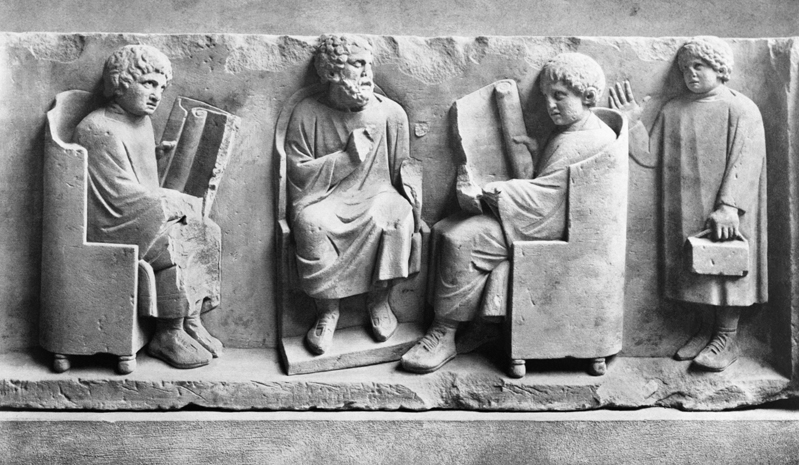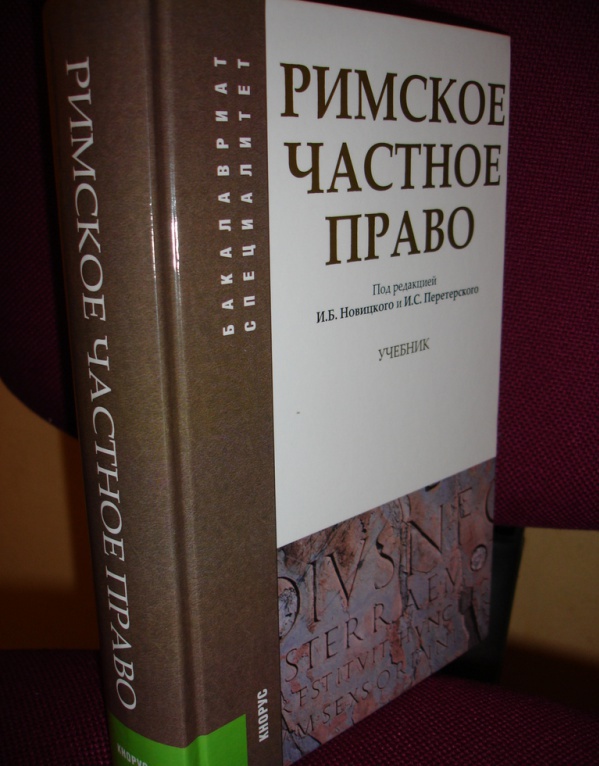Nowadays, the legal term “restitution” is often used by various media outlets covering various political and economic disputes between states belonging to the European Union. It is worth noting that this concept itself is very ancient and existed in Roman law. What is restitution and what opportunities did it open to citizens of the largest empire of the Ancient World, we will analyze in this article, and also talk about its impact on modern jurisprudence.

What is hidden behind this sophisticated term?
In order to give a clear definition of the concept of restitution in Roman law, it is necessary to understand the etymology of the word. It is known that it is a Russian reading of the Latin noun restitution, which means “return” or “restoration”. Thus, it becomes clear that restitution in Roman law is a process related to someone else's property or legal rights.
Bring it back if you're wrong!
This assumption is absolutely true, since in the civil code of the ancient Romans this term really meant returning by property parties of all property acquisitions, if the court considers the transaction concluded between them invalid. Simply put, I bought something, but at the same time I tricked and circumvented the law - return your acquisition, unless, of course, you could "hide the ends in the water."
Well, what did you do if the court established the illegality of the transaction, and the defendant could not return his purchase for any reason? For example, the defendant bought the house illegally, and by the time the court decision was made, it had already burned down. The process of restitution in Roman law also took this into account. Everything was decided very simply: if there is no property, return its value, and if there is no money, well, then you are welcome to the debt hole. This expression, by the way, was not just a pun, but was understood literally.

"Young is green" in the understanding of Roman lawyers
However, before making their decision, the members of the court had to reasonably prove the illegality of the transaction. As in the laws of all modern states, the formulation of the problem in the restitution of Roman law was formulated in accordance with a number of legal norms. First of all, this concerned the age limit of the participants in the transaction.
So, according to the laws in force in the territory of the Great Roman Empire, citizens over the age of 14 were considered adults. However, up to the age of 25, their legal capacity was partially limited, and the property status was controlled by their fathers (if, of course, they were alive). There were exceptions to this rule, and the law sometimes provided the youth with independence, allowing them to conclude deals. But in the event of a subsequent lawsuit, the inexperience inherent in their young age could cause the termination of the contract.

A few more conditions for termination of trade agreements
There were other nuances and features. Restitution in Roman law also presupposed the recognition of the transaction as invalid if one of its participants suffered obvious damage, which he could not have foreseen. A vivid example from modern life: a person bought a car from his hands, and after a while it turns out that the previous owner took a loan from him at the bank.Now this entails serious problems (for the buyer), and in ancient Rome such or similar scams did not go through - the deal was canceled and the fraudster paid the legal costs.
The contract was considered null and void if the plaintiff was able to prove that at its conclusion threats or violence were applied to him. That is, the classic "Bro, sell the cottage, or we’ll burn it," there hardly passed, because there was a corresponding law formulated in Roman law. Restitution helped to eradicate this evil, but, of course, only in those cases when the victims had evidence of the crime committed against them and had the courage to defend their rights.
And finally, the last: the reason for the recognition of the illegality of the transaction could be the fraud, deception or deliberate misrepresentation that took place at its conclusion. Suppose someone has managed to sell a land plot that does not belong to him, and after a while his true owner appears and claims his rights. How to be This is just the case when, thanks to the law on restitution, justice could be restored and evil punished.

Deadlines for filing claims
The law also stipulated the period during which an application for initiating a restitution process could be filed. In Roman law, this was the year since the conclusion of the illegal transaction. However, after the code of laws developed by the outstanding political and public figure of that era, Domitius Ulpian, gained legal force in 426, this period increased to four years.
Property conflicts of international scale
Now back to the beginning of the article, which states that the term "restitution" today refers to a number of processes in the relations between the countries of the European Union. Who was deceiving whom? The point, of course, is not a banal scam. If restitution in the system of law of the ancient Romans provided for the resolution of property disputes between two or more individuals, then in this case we are talking about the settlement of such conflicts between states and individual citizens.
Throughout almost the entire 20th century, Europe was shaken by wars and various political disasters, as a result of which many countries underwent significant property redistribution. When the Treaty on the Establishment of the European Union was signed in the Netherlands in February 1992, one of the main conditions for admitting to it was the requirement to introduce into the law a provision providing for the return to the former owners of property that was illegally expropriated from them.

How did the requirements of the law go?
In those countries where the previous cadastral records were not lost, the process of restitution went without any problems, and real estate often became the property of foreign citizens. This happened, for example, in the Baltic countries, whence, fleeing the communists, many wealthy people emigrated to Sweden, Denmark and Norway.
This process was somewhat more complicated in Poland and several other Eastern European states. There, most of the buildings claimed by the descendants of their previous owners were either destroyed during the Second World War or completely rebuilt. In this case, the states in whose territories they were paid monetary compensation to the owners.
Upcoming problems
There is reason to believe that great difficulties will arise in connection with the desire of Ukrainians to become EU members. Firstly, they will have to transfer a significant part of their real estate to the possession of citizens of Israel, Poland and some other countries, and secondly, somehow settle the issue with the Poles, demanding, as part of the restitution, the return of the territory of Western Ukraine, torn away in 1939 on based on the famous Molotov-Ribbentrop Pact.

Conclusion
On an international scale, restitution, which is understood to mean the return to the previous owners (or their heirs) of property lost due to various social upheavals and wars, is not only a condition for the entry of states into the European Union, but also a moral obligation for people affected by the tyranny of politicians.
In relation to individuals who became victims of fraudsters during transactions or some unforeseen circumstances, this process is considered as restoration of law and justice. In both cases, their legal basis is restitution. In Roman law, it appeared in the VIII century BC. e., then was finalized and in 426 entered the code of laws of the outstanding political figure of that era, Domitius Ulpiana.
